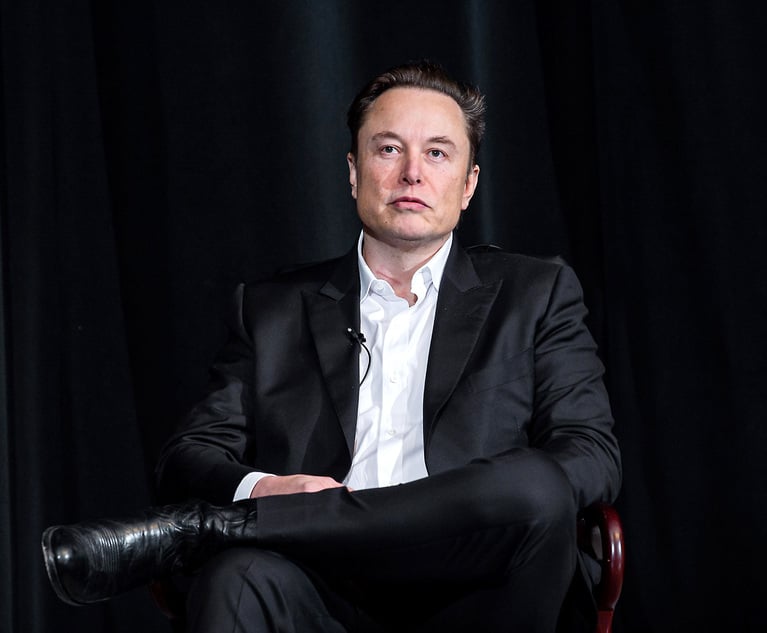It’s no secret that Chinese technology companies are among the fastest-growing businesses in the world today. Tapping into a bulging generation of local internet users – and particularly mobile internet users – these relatively young enterprises are ambitious, fast-moving and ruthless.
One such company is five-year-old smartphone maker Xiaomi – pronounced ‘shau me’, meaning ‘little rice’ – whose products now compete with the likes of Apple and Samsung in Asia. Headed by Chinese entrepreneur Lei Jun, the company is now the third-largest smartphone maker in the world and was valued at $45bn (£30.4bn) at the end of 2014. Headquartered in Beijing, the privately owned enterprise has not only gained a strong foothold in its domestic market, but is also positioning itself to take a significant share of the global tech space.
“It’s quite exciting but a lot of pressure,” says the head of the company’s 12-person legal department, Zhang Liang. “We’re not like foreign companies. Here everything we do is case by case. We don’t have a plan, budget or headcount. But it’s proved to be efficient.”
Zhang joined Xiaomi three years ago from France Telecom where he was also the in-house counsel for China, having previously worked for now-defunct law firm Heller Ehrman and also for China’s State Intellectual Property office. With a legal degree and a technology degree, he has long had an interest in anything tech, particularly IP matters.
Much of Xiaomi’s legal work is done in-house, although foreign matters and disputes are typically handled by external counsel. “We don’t have a budget for legal spend,” Zhang explains, “but you do your best to save money. Last year our spend was approximately RMB3m (£320,000) – so a very small amount.”
One of the company’s top priorities is geographical expansion, which Zhang says evokes a whole host of legal concerns. Though Xiaomi doesn’t actually open stores directly (preferring to sell its products online or through local dealers) it is still required to set up subsidiaries in each country and to localise its business for customer support and post-sales services. It currently has a presence in Hong Kong, Taiwan, Singapore, Malaysia, Thailand and Vietnam, and is looking to move into Russia, Bolivia, Mexico and India. The preference is to do everything alone – without a local partner – where permitted. 
“The business model has to be modified to comply with the local regulations,” says Zhang. “Where do you put your server? [How do you manage] data privacy?
Different countries have different demands. We have to analyse which kind of cloud service, for example. If we use ours, everyone’s details will be gathered together in our headquarters – is that permitted by local law? Sometimes local law also requires local investment to do online business. If we are not permitted to do e-commerce there we will have to form a partnership.”
There are also barriers to investment in countries that are sensitive to Chinese capital, he explains. “That’s my major headache when we go overseas.”
In the past Zhang has used magic circle firms for international expansion and other corporate deals, including Freshfields Bruckhaus Deringer for its Singapore setup and Allen & Overy for bank financing. More recently, however, the company decided to rely mostly on local outfits – international firms being more expensive, and also often tending to turn to local firms themselves in remote geographies. Xiaomi has decided simply to cut out the middle man.
Internet ambitions Beyond geographic growth, Xiaomi also wants to delve into new sectors. It manufactures not only smartphones but a whole range of electronic devices, including TVs, routers, ‘MiPads’, batteries, fitness-tracking wrist bands and headphones.
The company currently has its own messaging service known as MiTalk; a cloud storage service, MiCloud; and its own operating system named MIUI, which is based on the Android software. The focus is to develop its own app store along with investments in film and TV companies and online gaming businesses.
“We are focusing more on the internet… And we want to do the content by ourselves,” says Zhang. “From the very beginning we have lacked the content and collaborated with subsidiaries but they have provided us with some pirated content and that is a big headache in the long term.” He adds that, as the company announced last year, it is still planning to spend $1bn (£677.6m) on content.
Other investments will likely include home appliance companies and intelligent hardware, he says, as the company moves closer to its long-term vision of exploiting the ‘Internet of Things’: “In the future we want the routers to act as a headquarters to control every home appliance: then you can use our mobile phone as a remote control for everything in your home. That’s our big ambition.”
Covering the legal bases With investments, of course, come legal considerations, and for the bigger of these Xiaomi tends to rely on external counsel. What’s more, as the company grows in size and strength, competition issues and copyright infringement also become a concern. “For big M&A projects… mainly we will choose Jun He and another less well-known firm. They have a relationship with our boss [Lei Jun],” says Zhang. “For the dispute resolution part, different cases will go to different law firms based on which firm has a specialty in that matter. We don’t have a fixed target of law firms in the dispute resolution side.” High-profile overseas matters so far have included an investigation brought against Xiaomi by the Taiwanese Fair Trade Commission for overstating in an advertising campaign the number of phones it had sold (Xiaomi was fined NT$600,000 (£12,700)), as well as an ongoing case with Ericsson in India: the Swedish company claims Xiaomi products have infringed its patents. In December the Delhi High Court granted an injunction that banned the import and sale of Xiaomi phones. Zhang declines to say which law firm is being used, but clarifies that it is a local Indian outfit.
When it comes to domestic disputes, he says most are customer and copyright issues. “All of these are very complicated and so we will have a lot of law firms supporting us. Sometimes they are small local outfits but they are very efficient. Big law firms are sometimes better for corporate matters, but for dispute work small firms might be better.”
 Bright future Disputes or other issues, today it seems no challenge is too big for Xiaomi, with the name bandied about alongside the likes of Alibaba despite being only five years old. Given its growth plans, media speculation about the company centres on the possibility of a potential stock market listing this year, despite it having raised $1.1bn (£746m) in a round of private equity funding at the end of 2014 and securing a $1bn (£677.6m) loan in October, mostly from foreign banks. According to Zhang, there are no plans for a listing within the next five years.
Bright future Disputes or other issues, today it seems no challenge is too big for Xiaomi, with the name bandied about alongside the likes of Alibaba despite being only five years old. Given its growth plans, media speculation about the company centres on the possibility of a potential stock market listing this year, despite it having raised $1.1bn (£746m) in a round of private equity funding at the end of 2014 and securing a $1bn (£677.6m) loan in October, mostly from foreign banks. According to Zhang, there are no plans for a listing within the next five years.
The legal team, however, could be expanded to reflect Xiaomi’s ambitions. “In the future [I expect] the legal department will be divided into two – one part focusing on Chinese matters and the other on international affairs,” Zhang explains. “When that happens there will be a very big plan to grow and expand the number of people there. But there is no deal right now.”
Perhaps in the near-term there will be some new recruits? “No, budget means there are no headcount targets,” he clarifies. “When we find someone suitable for a position, we recommend him to the boss, and, if the boss can be persuaded, then people will come in.”
Xiaomi: fast facts
- Third-largest smartphone maker in the world after Samsung and Apple
- Founded in 2010 by Lei Jun – former Kingsoft engineer and dubbed ‘the Steve Jobs of China’. Forbes named him 2014 Businessman of the Year and China’s 8th richest man
- Hired Google vice president Hugo Barra in August 2013 to oversee international expansion
- Xiaomi means ‘little rice’. Upside down, the logo is the Chinese character for ‘heart’
- Business model: low-cost phones at premium quality. No physical stores; no typical advertising; all online sales and social media. No budgets or headcount targets
Zhang Liang CV 2012-to date – Xiaomi 2010-11 – in-house counsel for China, France Telecom 2009-10 – Intellectual Ventures 2007-08 – Heller Ehrman 2002-05 – China’s State IP office
Xiaomi in numbers $45bn – value at the end of 2014 31 ‘customer experience’ centres in China 7,000 employees 60m+ smartphones in 2014
NOT FOR REPRINT
© 2024 ALM Global, LLC, All Rights Reserved. Request academic re-use from www.copyright.com. All other uses, submit a request to [email protected]. For more information visit Asset & Logo Licensing.








